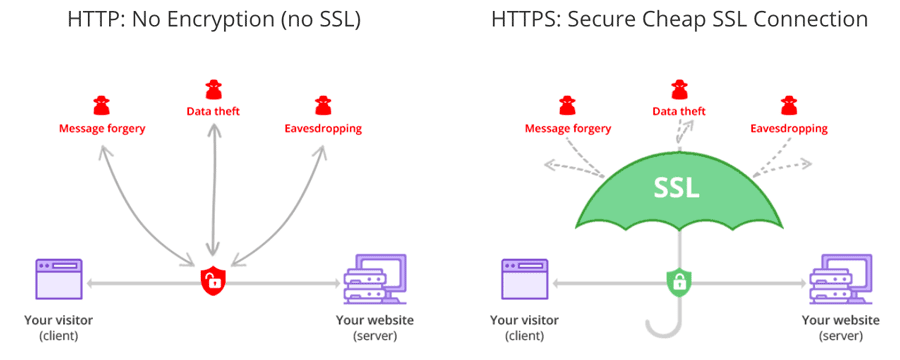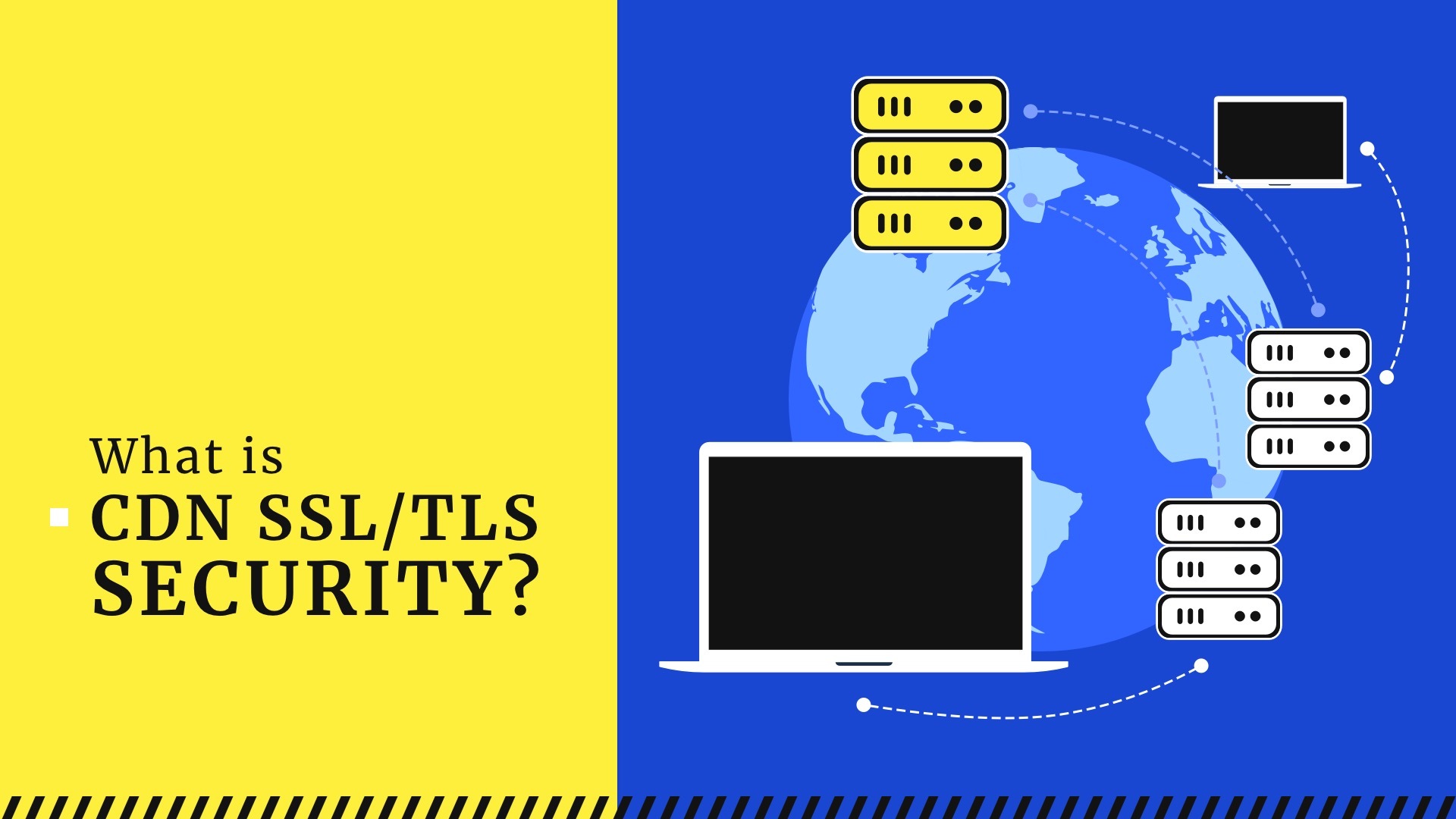Importance of SSL/TLS in CDN Services

SSL/TLS (Secure Sockets Layer/Transport Layer Security) is a cryptographic protocol that plays a crucial role in ensuring the security and privacy of content delivery network (CDN) services. Here’s why SSL/TLS is vital in CDNs:

1. Secure Data Transmission:
SSL/TLS encrypts data in transit between the CDN server and the client’s device. This prevents eavesdropping and ensures that sensitive information, such as user credentials, financial data, and intellectual property, remains confidential.
2. Data Integrity:
SSL/TLS includes a digital signature mechanism that enables the server and client to verify the authenticity and integrity of the data being exchanged. This protects against man-in-the-middle attacks and ensures that the content delivered by the CDN is not tampered with.
3. Authentication and Trust:
SSL/TLS uses digital certificates issued by trusted certificate authorities (CAs) to verify the identity of the CDN server. This provides assurance to clients that they are connecting to the legitimate CDN and helps prevent phishing and spoofing attacks.
4. Compliance with Security Standards:
Many industries and regulations, such as healthcare (HIPAA) and finance (PCI DSS), require the use of SSL/TLS to protect sensitive data. CDN providers that support SSL/TLS ensure compliance with these standards.
5. Improved User Experience:
Modern web browsers display warnings or error messages when users visit websites that do not support SSL/TLS. CDNs that implement SSL/TLS provide a better user experience by avoiding these notifications and increasing trust among users.
6. SEO Benefits:
Google and other search engines prioritize websites that use SSL/TLS, as it is a signal of security and reliability. CDNs with SSL/TLS support can improve website rankings and visibility.
7. Protection Against DDoS Attacks:
SSL/TLS helps mitigate the impact of DDoS attacks by encrypting data and making it more difficult for attackers to disrupt the CDN’s operations.
8. Regulatory Compliance:
In some countries, such as the European Union, SSL/TLS is legally required for online transactions and personal data processing. CDNs that support SSL/TLS help businesses comply with these regulations.
Conclusion:

SSL/TLS is essential for providing a secure, reliable, and privacy-conscious content delivery network service. By encrypting data, verifying connections, and enhancing user trust, SSL/TLS helps CDNs deliver high-quality content while protecting sensitive information and adhering to industry best practices.## The Importance Of SSL/TLS In CDN Services
Executive Summary
SSL/TLS (Secure Sockets Layer/Transport Layer Security) plays a crucial role in CDN (Content Delivery Network) services by encrypting data transmissions, ensuring data integrity, and enhancing security. With the increasing prevalence of cyber threats, SSL/TLS has become imperative for CDNs to meet the growing demand for secure content delivery and protect user data.
Introduction
CDN services have become essential for optimizing web performance and ensuring a seamless user experience. They cache static content such as images, videos, and scripts on multiple servers distributed geographically, reducing latency and improving website load times. However, as the internet evolves and cyber threats become more sophisticated, the need for secure content delivery has become paramount. SSL/TLS provides the necessary encryption and authentication mechanisms to protect data transmitted over CDNs.
FAQ
1. What is the purpose of SSL/TLS in CDN services?
SSL/TLS encrypts data transmitted between CDN servers and end-users, ensuring that sensitive information, such as credit card numbers and personal data, remains confidential.
2. How does SSL/TLS benefit CDN services?
SSL/TLS enhances the security of CDN services by preventing unauthorized access to data, protecting against eavesdropping, and ensuring the integrity of transmitted content.
3. Is SSL/TLS mandatory for CDN services?
While not legally required, SSL/TLS is highly recommended for CDN services. It has become an industry standard and is essential for protecting user data and maintaining trust.
Subtopics
1. Data Encryption
SSL/TLS establishes a secure connection between CDN servers and end-users, encrypting all data transmitted through this connection. This encryption process ensures that even if data is intercepted, it remains unintelligible to unauthorized parties.
- Secure Data Transmission: SSL/TLS secures data in transit, preventing eavesdropping and unauthorized data access.
- Enhanced Privacy: Encryption protects user information from potential breaches, ensuring data confidentiality.
- Compliance with Regulations: SSL/TLS compliance is necessary for many industries to meet data protection regulations.
2. Authentication
SSL/TLS uses digital certificates to verify the identity of CDN servers and end-users. This authentication ensures that data is transferred to and from legitimate sources, preventing man-in-the-middle attacks.
- Server Authentication: SSL/TLS verifies the authenticity of CDN servers, preventing end-users from connecting to malicious or fraudulent servers.
- Client Authentication: In some cases, SSL/TLS can authenticate end-users, ensuring that authorized users access restricted content.
- Secure Login: SSL/TLS secures login procedures, protecting user credentials from interception.
3. Data Integrity
SSL/TLS ensures that data transmitted through the CDN remains unmodified and unaltered. This data integrity check is crucial for maintaining the accuracy and reliability of content.
- Protection against Tampering: SSL/TLS prevents unauthorized modification of data, ensuring that content is delivered in its original form.
- Enhanced Trust: Data integrity builds trust among users, knowing that the content they receive is authentic and unaltered.
- Reduced Errors: SSL/TLS reduces data transmission errors by detecting and correcting corruptions.
4. Performance Optimization
SSL/TLS can optimize CDN performance by reducing latency and improving overall speed. This optimization is achieved through various techniques, such as session resumption and compression.
- Session Resumption: SSL/TLS caches SSL/TLS sessions to minimize connection overhead, resulting in faster subsequent connections.
- Data Compression: SSL/TLS can compress data before encryption, leading to faster transfer speeds and reduced bandwidth consumption.
- Improved Server Capacity: Optimized SSL/TLS connections reduce server load, allowing CDN servers to handle more concurrent requests.
5. User Experience
SSL/TLS enhances the user experience by providing a secure and trustworthy environment. This improved experience translates into increased user confidence and loyalty.
- Increased User Confidence: SSL/TLS reassures users that their data is protected, encouraging them to interact with CDN-delivered content.
- Enhanced Brand Trust: CDN providers that implement SSL/TLS build trust with users, establishing a positive brand reputation.
- Improved User Engagement: A secure and seamless user experience leads to increased user engagement and conversion rates.
Conclusion
SSL/TLS has become an indispensable component of CDN services, providing a comprehensive solution for enhancing data security, maintaining data integrity, and optimizing performance. By implementing SSL/TLS, CDN providers can protect user data, build trust, and deliver a seamless and secure content delivery experience. As cyber threats continue to evolve, SSL/TLS will remain critical for ensuring the security and reliability of CDN services.
Keyword Tags
- SSL/TLS
- CDN
- Content Delivery Network
- Data Security
- Security
